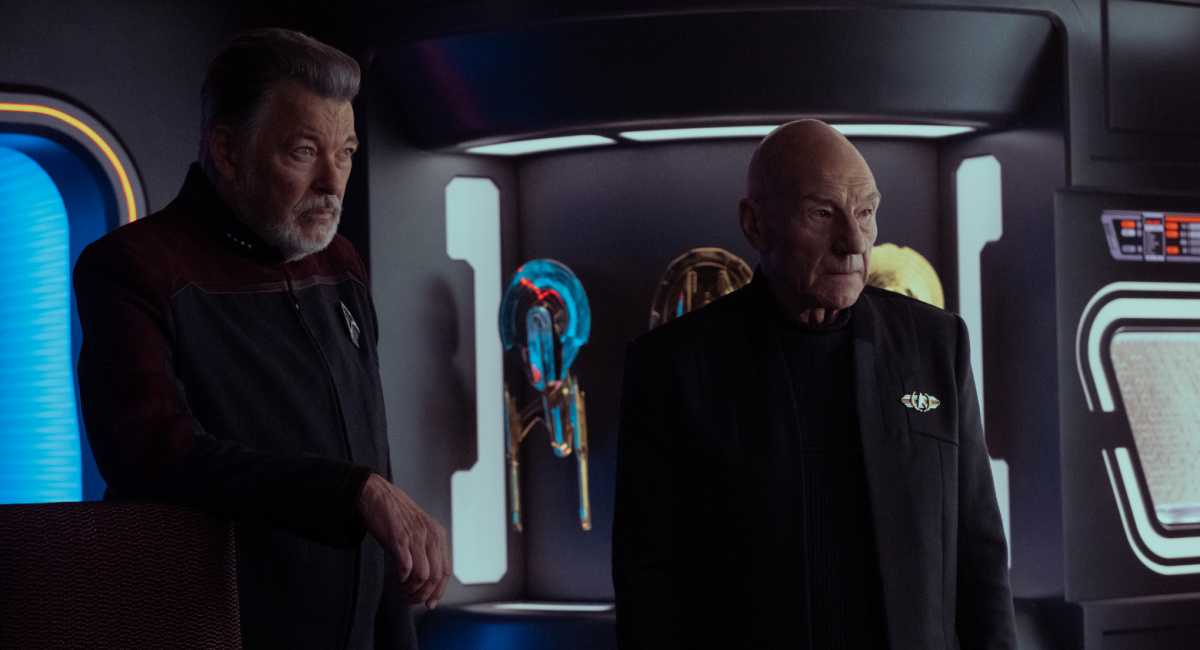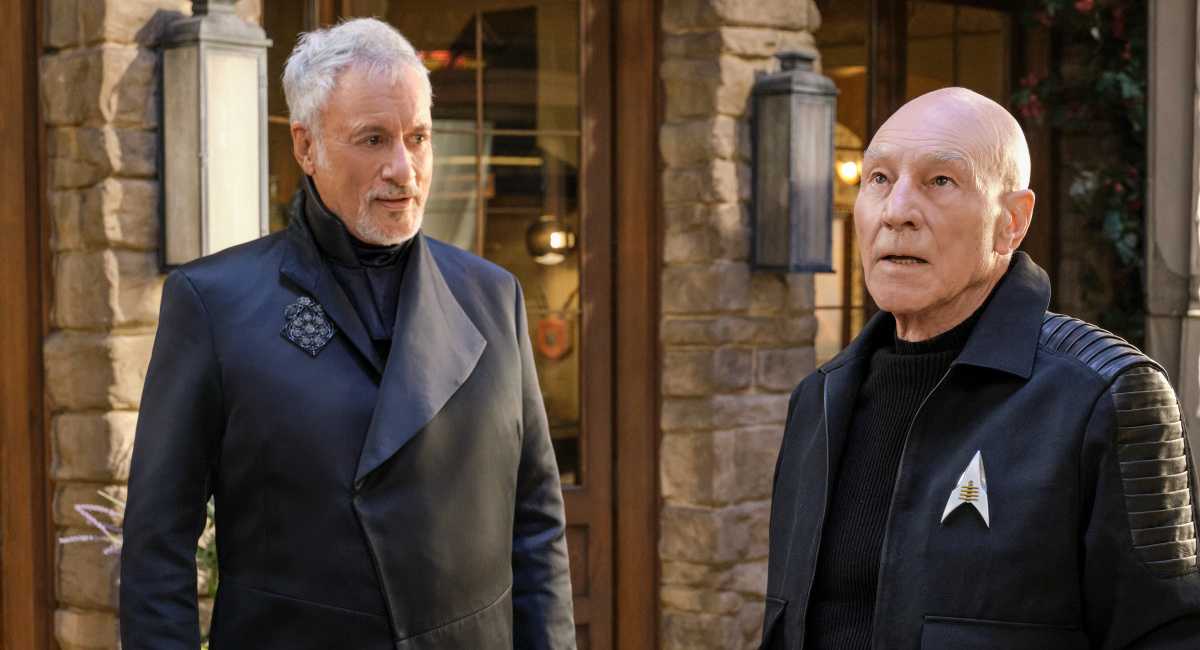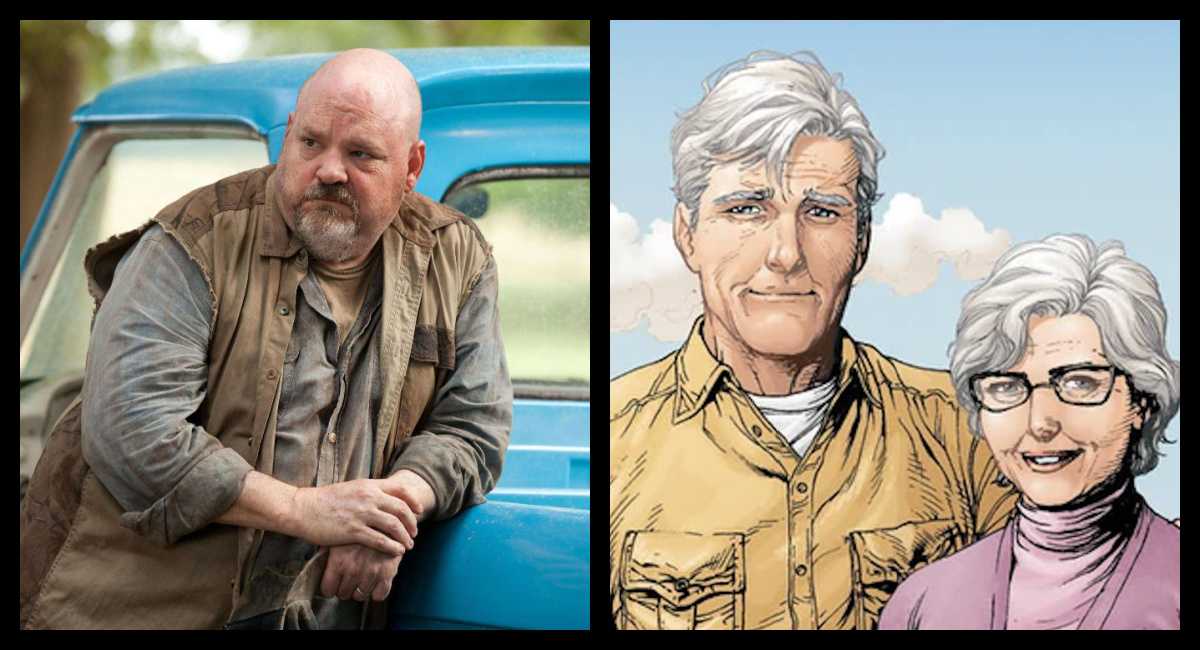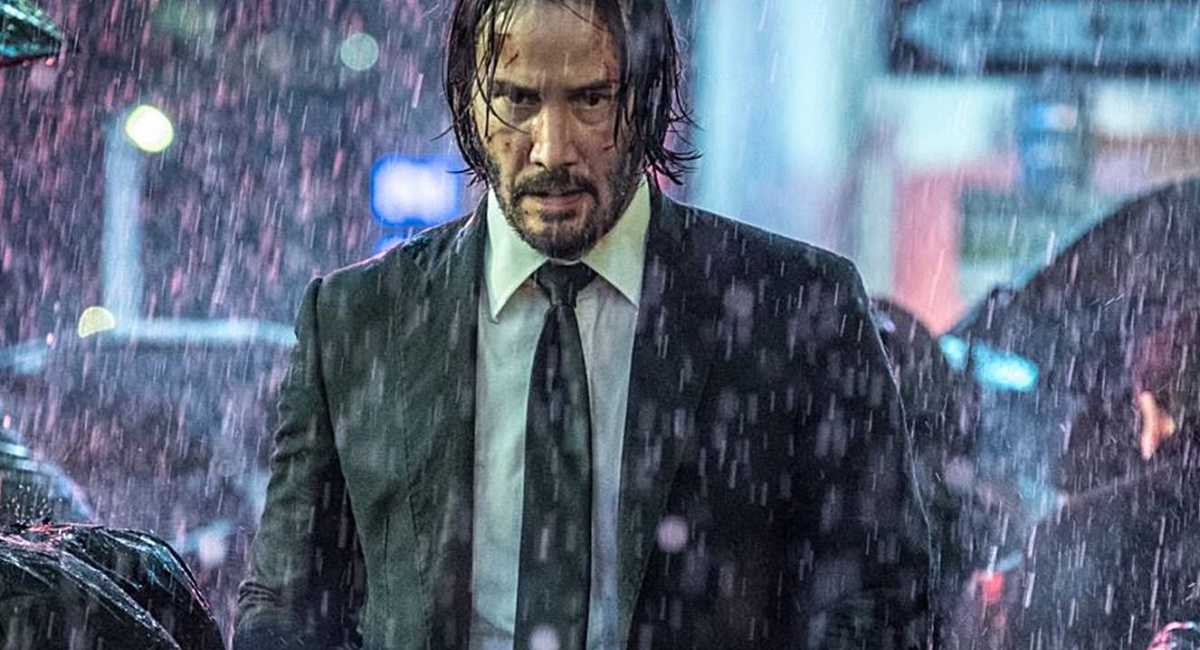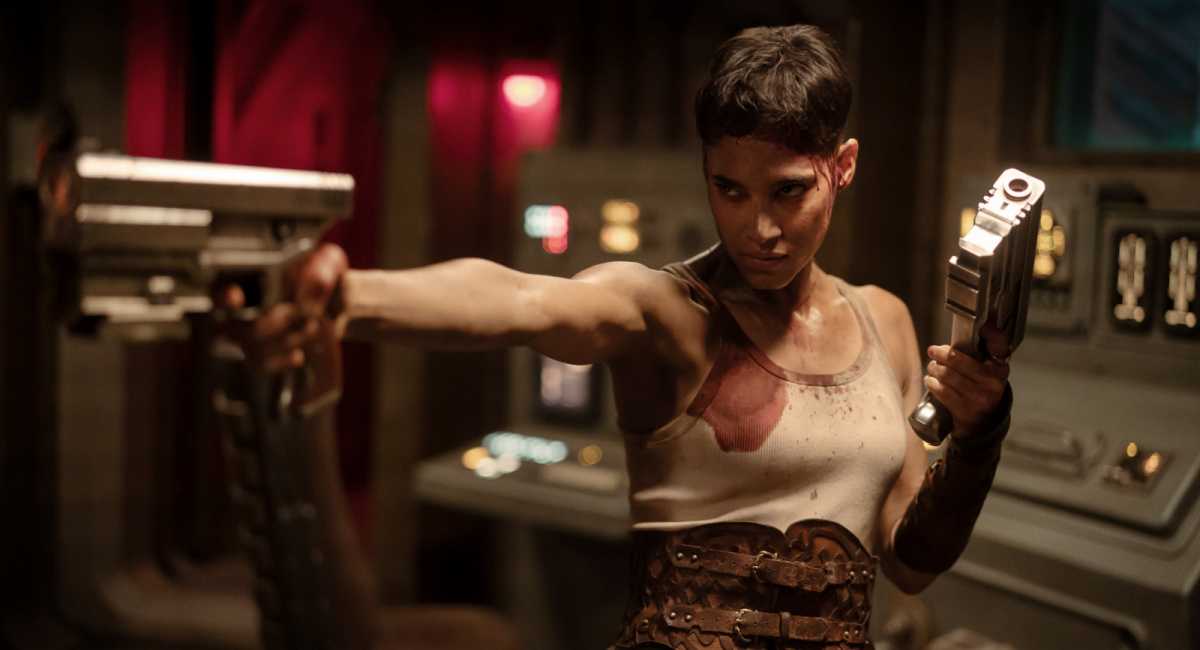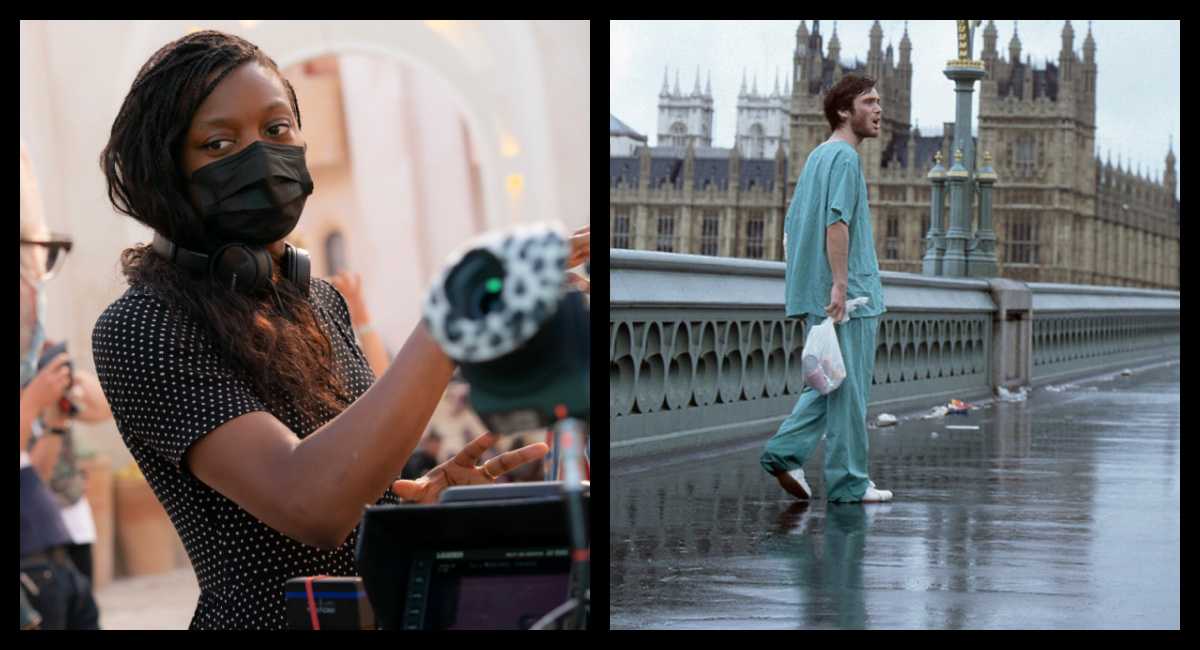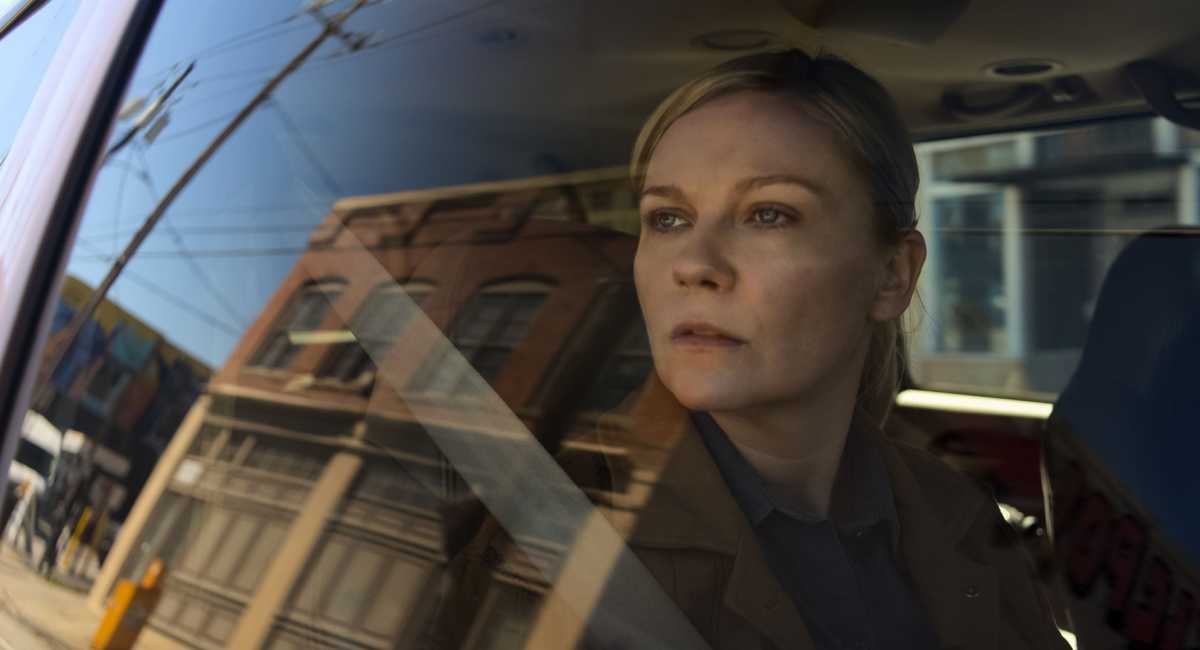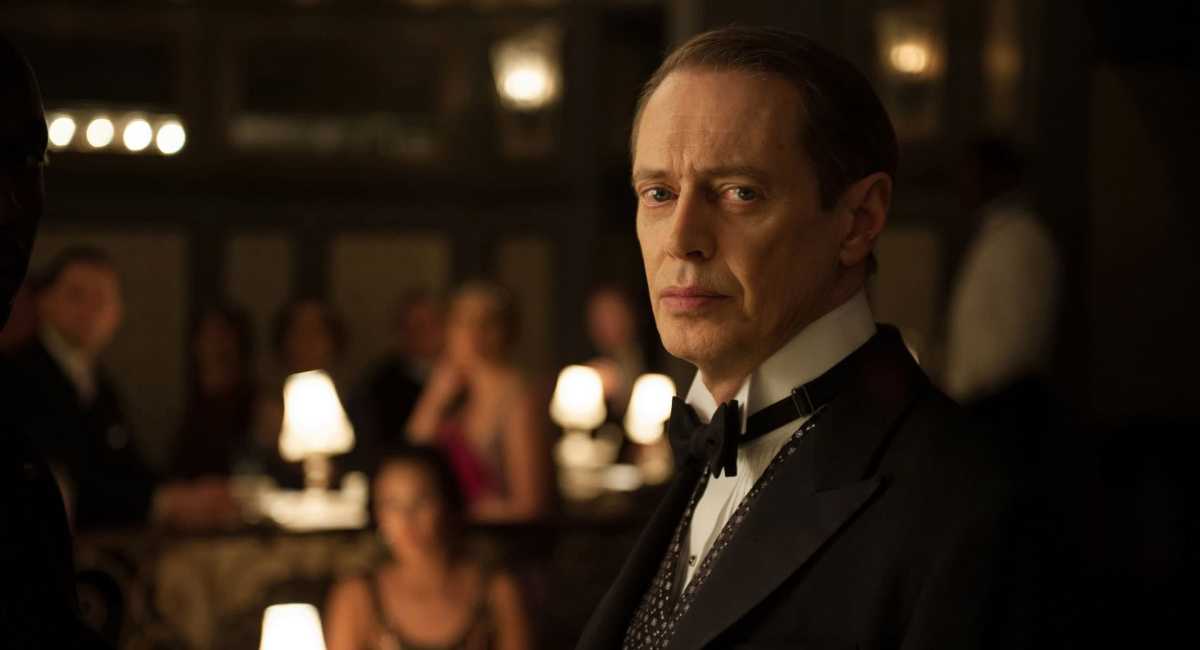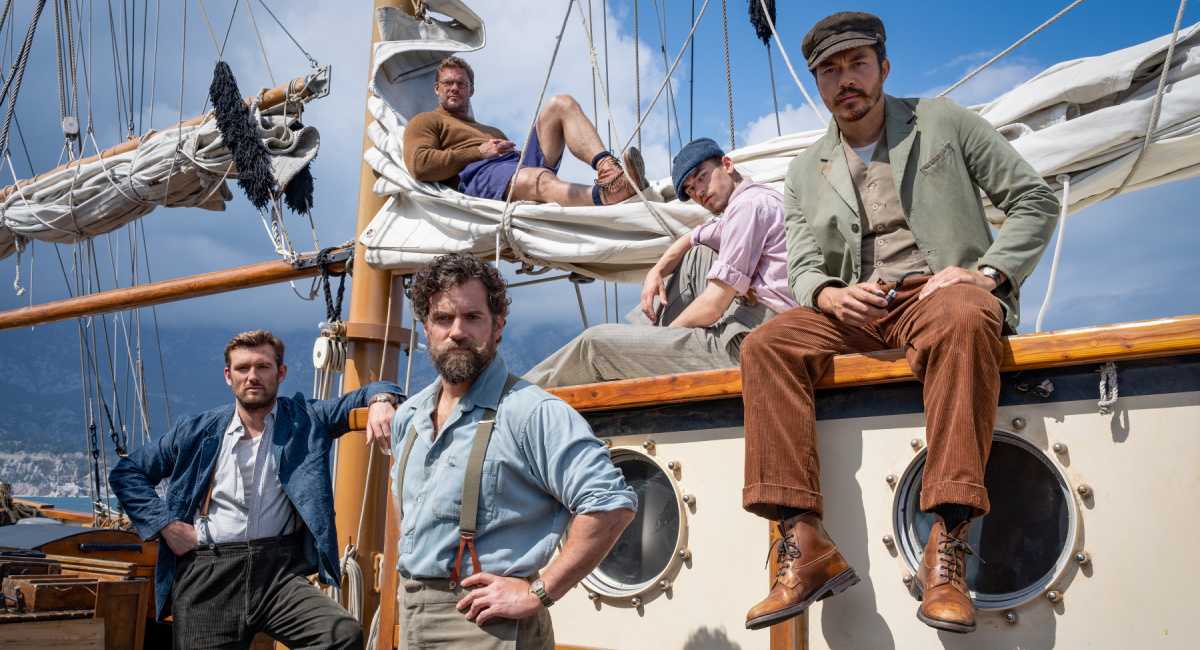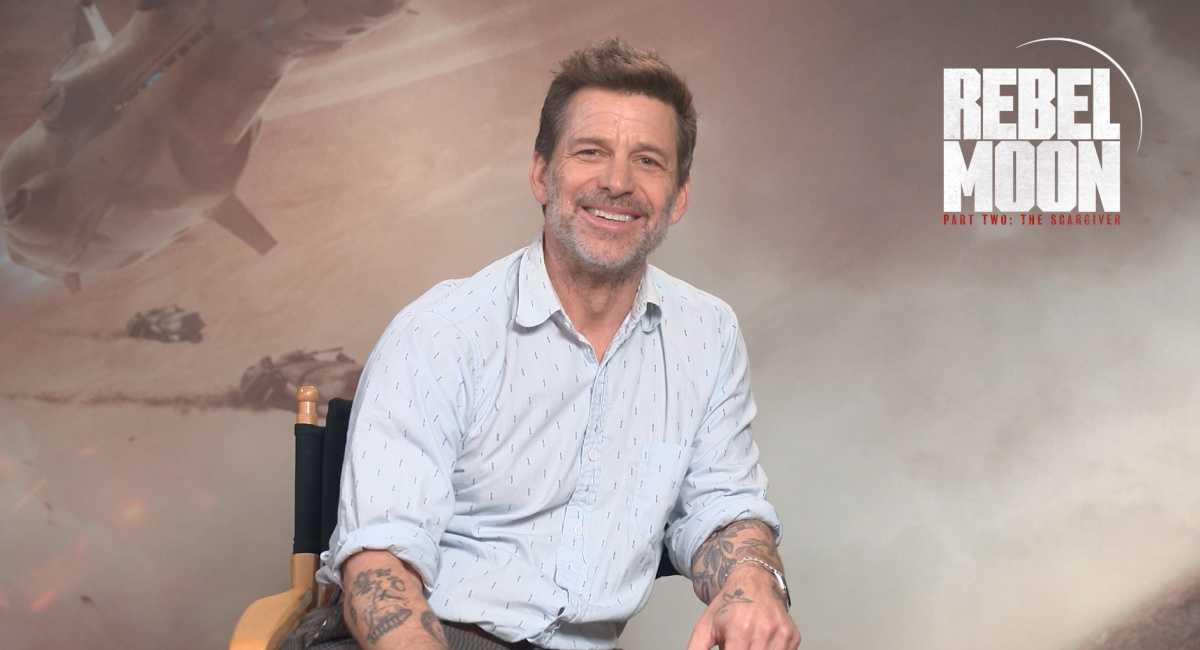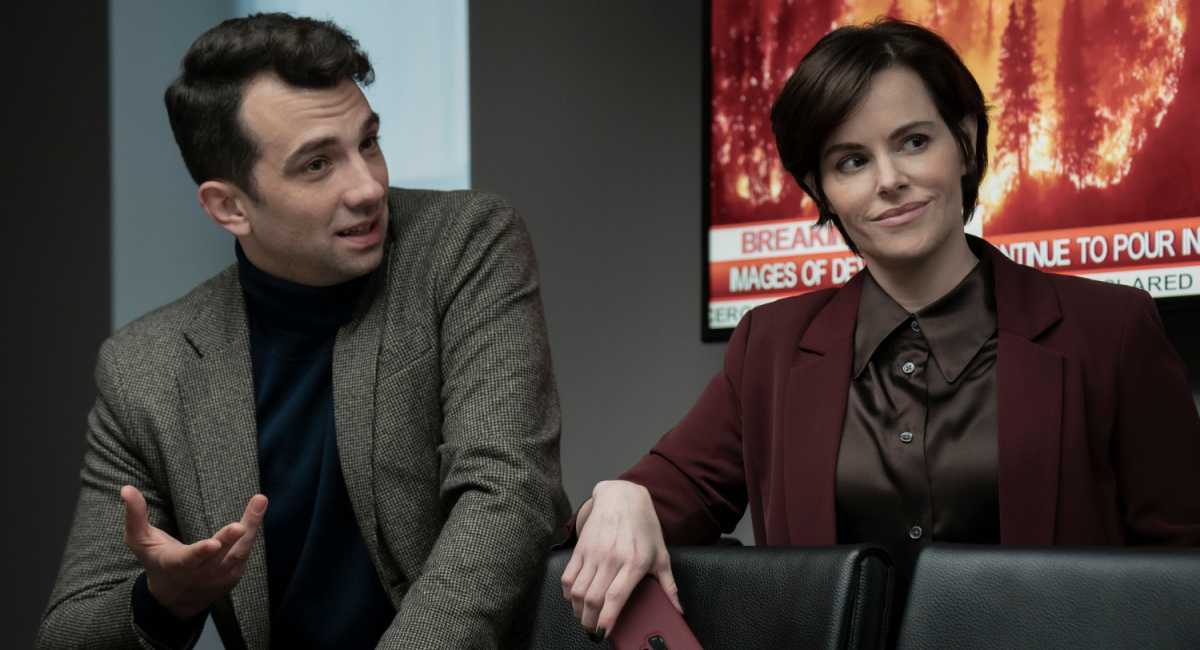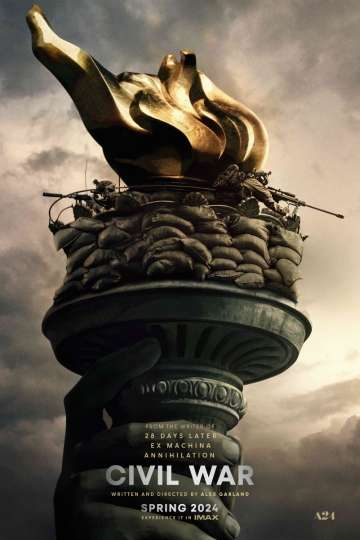Two New 'Star Trek' Books Explore 50 Years of Behind-the-Scenes Drama
To celebrate the 50th anniversary of "Star Trek," which first aired on Sept. 8, 1966 and has continued to boldly go forward as one of the most enduring, influential and visionary television creations of all time, Moviefone is offering a week-long look at five decades of the futuristic franchise.
With the release of their new two-book exploration of the "Star Trek" phenomenon, authors Edward Gross and Mark A. Altman have crafted a definitive -- and often downright dishy -- chronicle of the 50-year history of the fabled franchise, particularly when the cameras weren't rolling.
Taken together, the two recently released companion volumes in their "Complete, Uncensored, and Unauthorized Oral History of Star Trek" opus from Thomas Dunne Books -- "The Fifty-Year Mission: The First 25 Years" and "The Fifty-Year Mission: The Next 25 Years: From The Next Generation to J.J. Abrams"-- are an epic exploration at the creation and continuation of Hollywood's most durable science fiction property, told through the prisms of the producers, writers, directors, actors, executives, staff, crew, fan organizers and other key voices in "Trek's" unusual five-decade-long existence via largely new and occasionally archival interviews.
Both individually and as a team, Gross and Altman stand uniquely as the most "insider" of "Trek" outsiders: as entertainment journalists and authors, the writers themselves have decades-long histories covering the various "Star Trek" series and films for a long list of genre and mainstream outlets and books (Altman is now a writer/producer for film and television as well).
Their perspective on the evolution of the franchise and their connections to sources within its many incarnations are, without question, unequaled, which allowed them to assemble, in oral history form, a behind-the-scenes portrait as sprawling and stunning as "Star Trek's" on-screen saga. Gross joined Moviefone to reveal the authors' own odyssey as they become the preeminent "Treksperts" of their time.
Moviefone: You've done so much journalistic work with "Star Trek" over the course of your career. Getting your arms around the totality of it for these two books, did you learn anything that has been right in front of your nose about "Star Trek" that only doing the book revealed to you?
Edward Gross: I think the biggest thing was in the '70s, the period between the cancellation of the TV series, and the first movie, "Star Trek: The Motion Picture" The thing that amazed me is that all that stuff -- the history is: the show ends, it goes into syndication, the fans start watching the show, they start conventions, conventions lead to the animated series, the animated series leads to attempts at making a movie, or at least, "Star Trek: The Motion Picture." All of those things have become footnotes in history.
What we were able to do in the discovery in this was speaking to the guy who came up with the idea of syndicating "Star Trek" against local newscasts. Let's speak to the first people who started the first fan scene. Let's speak to the women who did the first convention. Let's speak to the people who were involved in all of those aborted attempts at bringing it back.
So my personal illumination was just watching the '70s expand, from the footnotes in history to what we have in the book, which I thought was good. And that's what I'm proud of.
When you write about "Star Trek" in depth and you deal with people like Gene Roddenberry, who are venerated by the fans but they have flaws and feet of clay like anybody else, how hard is that to handle properly in the telling of it without alienating certain members of the fanbase?
I think it's finding the balance between the brilliant visionary that he was for coming up with the concept of "Star Trek." Whatever you want to say about his writing later, he came up with "Star Trek," he deserves all the accolades in the world for that. But as far as the negatives, it's like anybody else. What Mark and I tried to do was to make sure that we balanced everything out. If you're going to have people slamming Roddenberry on this hand, you're going to have them praising him on this hand.
The running joke in the first book is, and I think you've read it, people would comment about, [William] Shatner was, "Well, Bill's Bill. Shatner's Shatner." I mean, everybody has the same opinion of Shatner. But we also try to sing the praises of Captain Kirk and his portrayal of Captain Kirk, and what he brought to that role.
I think, also, in Book Two, when had more of that kind of stuff where there's negatives, we try to balance it with the positives. I think that's the best way to approach it, because you're not going a hatchet job, you're trying to present the history, and more importantly, you're letting the people who live that history present that history. It's not Mark and I presenting the history. We're merely sort of the conduit for them to get their views out.
What was the balance of original material in the book versus what you guys had in your archives of interviews you've done over the years? Obviously, you include quotes from those who've passed like James Doohan and DeForest Kelley, but then there's a lot of fresh material, too.
It's pretty high on new stuff. We sat down with a lot of people for a lot of hours. Mostly for the people who are gone. That's where our archives really came in handy, is where it's like, "Okay, can't speak to [frequent original series director] Marc Daniels; we can't speak to this one, we can't speak to that one." So that's where we would have to dip back, because there's no choice, but we've spoken to these people.
["The Trouble With Tribbles" screenwriter] David Gerrold we interviewed for, like, seven hours years ago. We went back to David now, but we had seven hours worth of interviews with David Gerrold, so it's that type of thing. A lot of the archives went untouched. Like a lot of our stuff, even if the interviews were old, they never saw the light of day until now. It's like, "We never ran this -- let's run that. This is interesting ..." and that kind of thing.
Of the newer stuff, what was, for you guys, the best get? What was most exciting when somebody said, "Yeah, I'll talk to you"?
Believe it or not, there are two people who I didn't know that was the best get until we got them. [Producer and showrunner] Gene Coon's secretary, Ande Richardson, provided an insight into Coon and working on that show -- a really amazing discovery.
And then, for the movies, it was Deborah Arakelian, the assistant to Harve Bennett and Robert Sallin, who just opened up the making of "Star Treks" II and III in a way that it had never been opened up to us before, anybody before. They provided an insight you don't normally get, and believe it or not, those were the "ah-has!"
And in Book Two: Next Generation." I don't think anybody interviewed him except me. At the very last minute, I remembered that I had an unlabeled black mini-cassette in a box of mini-cassettes in my basement. And I went down there and I dug two tapes and I found the Burton Armus interview. So this lost interview of Burton Armus, it's like, "We have Burton!" His comments on Season Two of "Next Gen" is just great. So illuminating.
So you have the big picture: What makes "Star Trek" so unique as a pop culture property and phenomenon -- the durability of it all, the mass appeal of it all?
I think the mass appeal of it really goes back to the corny, clichéd hope. When "Star Trek" debuted in '66 and through its run, think of what it was up against in terms of the real world, in terms of what was going on with the Cold War and race riots, Vietnam, and everything else that was going on. And here's this little beacon of hope that said, "We're going to be okay. It's going to be okay."
Great. Flash forward 50 years: look at the world around us again. Look where we're at, with so much horrible stuff going on ... It is a very troubling time again. And what have we got? We've got this new movie "Star Trek Beyond," which I thought was terrific. I thought it captured the old show, and yet, it's the best "Star Trek" movie you're going to get in 2016, in terms of action, and scope, and philosophy.
The new TV series "Star Trek: Discovery," I think is going to totally embrace the ideals of "Star Trek," which are applicable today as much as it was in 1966.
Tell me your gateway into "Star Trek." Why did it become such a fun passion for you?
When I was a kid in Brooklyn, during the course of the series I was six to nine, and my friends and I would go out in the street and play "Star Trek." We didn't play baseball -- we played "Star Trek." It started there as sort of, "Oh, the cool science-fiction show." I, like so many people, I caught it in its original run, but to me it was just a cool science-fiction show.
In the reruns in the '70s, it just captured my imagination -- and what really captured my imagination was not only the allegories, but the Kirk, Spock, and McCoy relationship. That to me was unlike anything I'd ever seen on television before. That kind of connection between the characters. And it started, and of course it just grew from there. Through "Starlog" and everything else.
Nobody knows this show better than you and Mark, outside of the people who made it --
Well, we'd like to think so!
How did the combining of your talents go? Tell me the history that you guys have, just knowing each other, and then working on this massive project together.
We worked on some stuff back in the '80s and '90s together. One day I called them up and said, "Hey! You got 'Star Trek,' I got 'Star Trek' -- we should talk." And we did, and we worked on some things.
I think the fun of it was Mark would get interviews with certain people, I would get certain interviews with people. Then, I'd write him and say, I got an interview with so-and-so -- like, it was specifically Gerald Isenberg and Philip Kaufman. I just got off the phone with Philip Kaufman. I get a phone call a few minutes later, and in his best Kirk/Shatner he would go [quoting "Star Trek: The Motion Picture"] "Stop ... competing with me, Decker!" And that became our catchphrase through the books: "Stop competing with me!"
It was such a joyful project for the two of us. We were so excited. We're friends for decades, but we really got tight on this, and we really worked closely on this. It was a true collaboration. He'd go right to the "Enterprise" chapter, for instance, I'd write the "DS9" chapter. He'd write the "Next Gen," I'd write "Voyager." Then we'd go over each other's thing. It was a great collaboration.
In the course of your career, give me your best day working on something "Star Trek"-related.
The favorite day. I have to say, being on the set of "First Contact" and watching them film a scene that I can still watch to this day. I was there. I mean, I was on the set of "Voyager" once, and that was fun, too, but the "First Contact" really stands out as far as my stepping into that world in a way that I was never able to before, and I think "First Contact" allowed me to do that. I didn't get to sit in the captain's chair, but I saw the captain's chair. That was kind of cool.
I'll ask about fandom in "Star Trek" general, because the fans have kept it alive and they've had so much fun with it in doing so. They like playing around with it and their love of it. Is that, too, part of the charm of "Star Trek" -- the fan enthusiasm and taking it to sometimes goofy extremes?
I think that's part of it, although people mock that part of it I think, a lot. But it's fun, and people enjoy it, and what's the harm if it's not hurting anybody and they're getting great enjoyment, and it bonds them. I don't think there's anything wrong with that.
But the bottom line is this: now granted, this is a new generation of fans, but I think you cannot take away from the fact that the fans are the ones who kept this going when it got cancelled. And if it wasn't for the fans, there would be no "Star Trek," beyond the original series, and I give them full credit for that.
They are the ones who for the first time in television history said, "No, you can't cancel my show. I refuse to accept cancellation." And they were right. And look where we are now, 50 years later.


